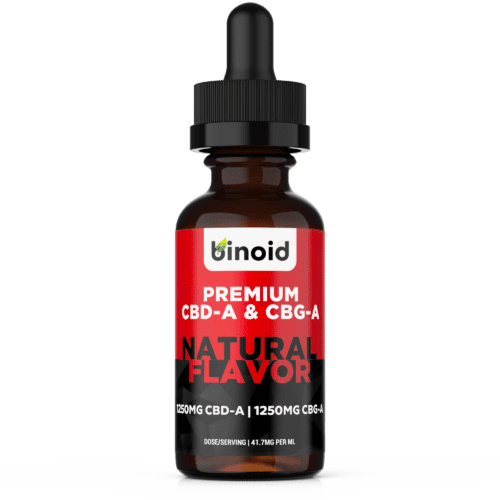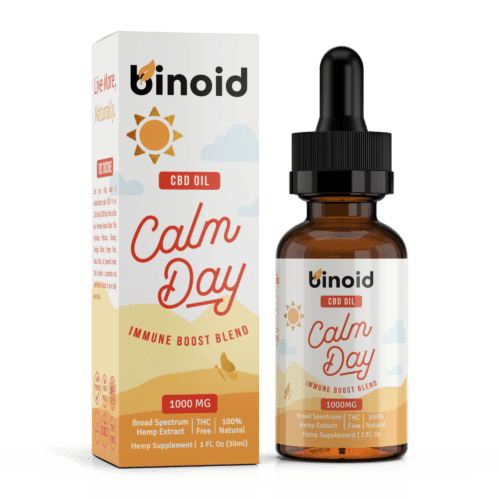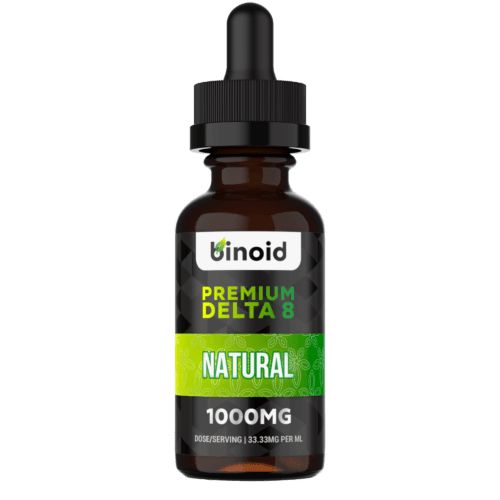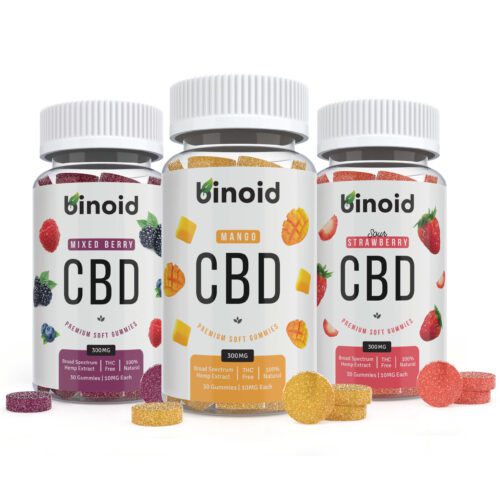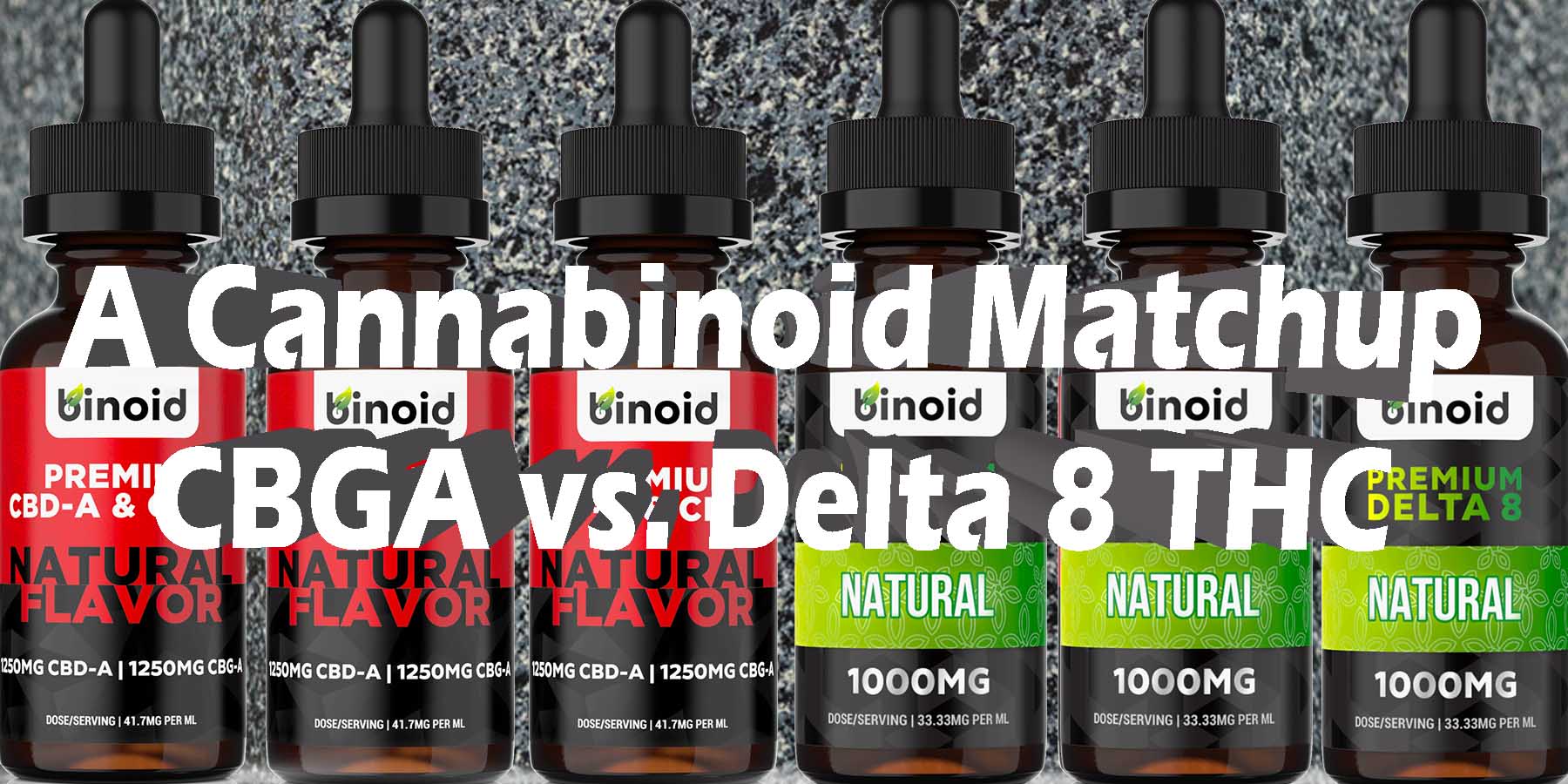
CBGA vs. Delta 8 THC: What You Must Know
Here at Binoid, some of the most commonly asked questions that we get relate to how one cannabinoid compares to another. That’s a very understandable question considering the fact that all cannabinoids work with the body’s endocannabinoid system (ECS) to offer effects that can regulate how we feel and function each day. But, each cannabinoid really is one of a kind when it comes to the specifics of its effects, and that’s especially noticeable when we compare CBGA with delta 8 THC.
While these two cannabinoids actually share quite a few properties in common with one another, ultimately, they’re very different from one another, and we’re going to be exploring those differences and similarities so that you can decide for yourself if CBGA, the newcomer to the market, is worth trying.
To Buy CBGA Products Click Here
CBGA (Cannabigerolic Acid)
Origins: Cannabigerolic Acid refers to the raw form of cannabigerol (CBG), the “mother cannabinoid” that converts into cannabidiol (CBD), and tetrahydrocannabinol (THC) as the hemp plant matures. CBGA is the result of taking the cannabinoid out of the plant and choosing not to decarboxylate (heat) it. The process of decarboxylation is used by just about every hemp company because it unlocks the more well-known effects associated with cannabinoids. Most notably, decarboxylating THC makes it psychoactive, as it is non-intoxicating in its raw form. But, raw CBGA has been found to provide its own properties that make it completely unique.
Psychoactive Properties: Cannabigerolic Acid is completely non-psychoactive. As mentioned earlier, no cannabinoid is intoxicating unless it has undergone a process of decarboxylation. But, we also know that cannabigerol is not psychoactive, so CBGA would not be either since the overall cannabinoid configuration has no intoxicating qualities, bypassing CB1 receptors responsible for the high associated with THC.
Other Properties Associated with CBGA
Let’s move onto the uses for Cannabigerolic Acid that have been getting a lot of attention lately. Keep in mind that CBGA research is in its infancy stage, and more studies will come out in the future now that the cannabinoid is gaining momentum among cannabis researchers.
- Anticonvulsant Properties: Studies show that CBGA may act as a particularly potent neuroprotectant that could have applications among those with epilepsy. It regulates neurological activity by strengthening neural pathways and preserving neurons while stimulating neurogenesis. Further, the cannabinoid seems to offer distinctive anticonvulsant properties that relate to seizure activity.
- Cardiovascular Effects: CBGA may lower oxidative stress that can contribute to heart disease and other cardiovascular ailments, due to an imbalance of free radicals and antioxidants. Given the prevalence of heart disease in our country, this is a property of the cannabinoid that’s worth continuing to explore.
- Metabolism Regulation: Researchers are taking an interest in the effects that CBGA has on metabolism. This research is extremely new and scientists are still trying to understand exactly what role CBGA plays in metabolism regulation. But, early studies suggest that CBGA may play a role in managing certain metabolic disorders and generally contributing to metabolic homeostasis.
- Properties Relating to SARS-CoV-2: A very recent study done only last month found that when combined with CBDA (cannabidiolic acid), CBGA may prevent the SARS-CoV-2 spike protein from absorbing into the cells of the body, and the lung cells in particular, which can turn the virus into a deadly disease. These cannabinoids attach themselves to the spike protein, changing its physical structure to inhibit its ability to permeate human cells.
Legality: Cannabigerolic Acid is a completely legal cannabinoid under federal law (2018 Farm Bill) and in all 50 states. There are no restrictions pertaining to product type, concentration, purchase amount, or possession amount.
-
Product on sale
 Binoid Calm Day CBD Oil – Immune Boost$28.99
Binoid Calm Day CBD Oil – Immune Boost$28.99$64.99
Delta 8 THC (Delta-8 Tetrahydrocannabinol)
Origins: Delta-8 Tetrahydrocannabinol is a minor cannabinoid found in the hemp plant that makes up about 0.1% of the plant’s chemical composition. The cannabinoid is actually the result of aged delta 9 THC within the plant, which naturally converts a portion of itself into delta 8, an entirely new compound with its own properties and characteristics.
Psychoactive Properties: Delta 8 THC, unlike CBGA, will get you high. It’s about 70% as psychoactive as delta 9 THC, making it milder, and more clear-headed of a high. Many people find that delta 8 is the perfect evening cannabinoid because its properties can be quite soothing after a long day.
Other Properties Associated with Delta 8 THC
Since the 1960s, when it was first isolated, delta 8 THC has been studied for its various properties that go beyond the psychoactive. In fact, the cannabinoid has a lot of valuable uses.
- Relief from Physical Discomfort: Delta 8 THC is known for both its analgesic and anti-inflammatory properties, and this makes it great for physical discomfort. It can both regulate inflammation that causes discomfort and regulate pain receptors in the nervous system to make them less reactive.
- Anxiolytic Effects: Delta 8 THC works on CB1 receptors responsible for our stress response, and this is why so many people find that taking delta 8 helps them feel more at ease, mentally.
- Increased Appetite: Delta 8 THC is one of many cannabinoids that seems to offer appetite-boosting properties that can encourage a person to consume more food each day.
- Neuroprotective Properties: Like CBGA, delta 8 THC can act as a neuroprotectant, offering a balancing effect on the neurological system that may be useful in those dealing with epilepsy.
Legality: Because of the 2018 Farm Bill, delta 8 THC is a legal cannabinoid federally, despite being psychoactive. This legislation made all hemp derivatives with a maximum amount of 0.3% delta 9 THC fully legalized. However, some states have banned delta 8 due to its intoxicating nature:
- Alaska
- Arizona
- Arkansas
- Colorado
- Delaware
- Idaho
- Iowa
- Mississippi
- Montana
- New York
- Rhode Island
- Utah
- Vermont
CBGA and Delta 8 THC: Two Cannabinoids You Really Need to Check Out!
Both Cannabigerolic Acid and delta-8 tetrahydrocannabinol can provide serious value to your daily life. One is intoxicating, and the other is not. Still, they both possess fascinating properties by their relationship to the ECS, and there is still a lot more to discover about each of them.
Thankfully, you don’t have to choose if you don’t want to. As is the case with all cannabinoids, CBGA and delta 8 can both be taken as part of a daily routine, since they do not conflict with one another.
Note: If you’re currently on any medications or are simply looking to take either cannabinoid for the first time, it is best to speak with your doctor first. A physician has the access to your medical records, so they can make the proper determination if delta 8 THC or CBGA is right for you.
At Binoid, you can find a large variety of delta 8 products and CBGA products that are all made with lab-tested distillates and clean, fresh ingredients. See for yourself what each cannabinoid in general can do for your daily life at last.
To Buy CBGA Products Click Here
-
Product on sale
 Binoid CBD Gummies – Bundle$63.99
Binoid CBD Gummies – Bundle$63.99$119.97

